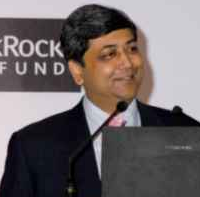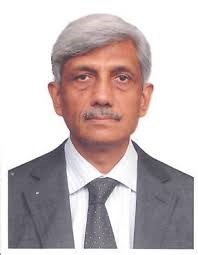- July 18, 2015
- Posted by:
- Category:Advocacy, BLOG, Mumbai, Panel Discussion
Contributed by: Shreenivas Kunte, CFA
Putting investors first is a global initiative driven by investors and CFA charter holders around the world. The purpose of this initiative is to build a culture of trust and acknowledge the commitment of financial intermediaries for putting investor interests above all others.
NSDL, supported by the Indian Institute of Investment Professionals and the CFA Institute, hosted an event last week for emphasizing the responsibility that financial intermediaries in India have in their capacity as investment advisers. Also the Hindi and Gujarati versions of the statement of Investor Rights were launched during this session.
Mr. Prashant Saran, full time SEBI member graced the function as a chief guest. NSDL MD and CEO G. V. Nageswara Rao as a convener and host provided insight into some of the main challenges that Indian investors faced and the way forward. CFA Institute President and CEO Paul Smith, CFA, graced the occasion as a key note speaker. Following Mr. Smith, Mr. Navneet Munot, CFA, CIO SBI Mutual, had a panel discussion that included eminent industry experts like Mr. Dhirendra Kumar, Founder & Chief Executive Value Research, Ravi Varanasi, Chief-Business Development, NSE and Vijay Venkatram, Managing Director, Wealth Forum as panelists.
Mr. Saran at the onset, highlighted the high regard he had for such investor events given that SEBI’s primary mandate was in protecting investors. Mr. Saran summarized in his speech important takeaways from the national strategy on financial education.
For Mr. Saran, investor financial education had become a necessary life skill. According to Mr. Saran, there was a need to build basic awareness of the financial system and its linkages. Forming an understanding of the types of financial products and an appreciation of the time value of money are among some of the learning outcomes that he expected from investor education programs. For Mr. Saran, investor education programs would be required to target broader areas from housewives in remote villages to urban households. For Mr. Saran, every individual in India is a potential stakeholder. Mr. Saran stressed the need to ensure financial literacy among those who were illiterate.
Mr. Rao emphasized the need for financial education and touched upon the tool sets that would be play an empowering role in removing financial poverty. To Mr. Rao, just 32% of the savings in financial assets and 68% in physical assets was an unhealthy proportion for the wellbeing of India’s financial markets. Mr. Rao pondered on ways to bringing more people into the financial savings network and for building vibrant and deep financial markets. He stressed on the need to build a framework for professionals that would encourage a culture for utmost fiduciary propriety and prevent frivolous short term practices such as miss-selling and overcharging on financial products.
Mr. Rao highlighted the need for a financial advisory culture based on longer term, portfolio/ holistic guidance to investors. In this context, Mr. Rao highlighted toolsets that could aid investors. NSDL’s latest consolidated account statements for example gave a broad portfolio visibility to investors.
He looked at empowering investors with complete views of asset class balances and performances across different levels – from individuals to joint family owned.
He wanted such portfolio centric consolidated reporting statements to be a conversational point between investment advisers and investors.
Mr. Smith in his speech gave insightful perspectives and the state of affairs of the financial services industry. Mr. Smith drew attention on the slowly eroding values in the industry. He questioned as to why, compared to other industries, customer was not treated as a king in the financial services industry.
According to Mr. Smith undue focus on short termism and a product push approach had resulted in investors losing faith. He stressed that if financial service provided did not act in the best interests of their clients, regulators would step in with rules that would be seen as more and more invasive.
Mr. Smith stressed the need to focus on professional services rather than products. He emphasized the need to build a profession rather than a business for the ultimate benefit of the society. Mr. Smith highlighted the significant growth opportunity in Asia – a need to service a fast growing middle class. The opportunity was there to be shared provided service providers dreamt and worked on building for the long term.
 Panel discussion led by Navneet Munot, CIO SBI Mutual, Director Advocacy Committee, IAIP:
Panel discussion led by Navneet Munot, CIO SBI Mutual, Director Advocacy Committee, IAIP:
Mr. Munot conducted a thought provoking panel discussion on questions that covered financial services best practices and the pit falls that one needed to watch out from. Some of the key takeaways from the panel discussion include:

 Panelists – Dhirendra Kumar, Founder & Chief Executive Value Research, Ravi Varanasi, Chief-Business Development, NSE and Vijay Venkatram, Managing Director, Wealth Forum – expected a game changing transformation of the financial landscape and expected rapid democratization of financial services providers. The key highlight was to focus on the longer term rather than on the short term.
Panelists – Dhirendra Kumar, Founder & Chief Executive Value Research, Ravi Varanasi, Chief-Business Development, NSE and Vijay Venkatram, Managing Director, Wealth Forum – expected a game changing transformation of the financial landscape and expected rapid democratization of financial services providers. The key highlight was to focus on the longer term rather than on the short term.
- There was need for a greater transparency and disclosures in financial products. A requirement for financial education especially in the learning that past performances are not a guarantee at all on future performance.
- Panelists stressed the need for maintaining investment policy statements and for the shift in advisory focus from being a product push company to a professional financial services firm.
- There was a need for minority shareholder protection and for building a framework where investor had a better level of trust in promoter companies.
- CFA Institute Board of Governors member, Collin McLean reiterated the need to service with a long term view and steward ship necessary to build a culture that promoted public trust.
- Panelists agreed on the importance that social media and technology could play in quickly shaping investor behavior. There was a need for decision makers to strategize on policies that would align the roles of investment advisers and investors.
– SK




